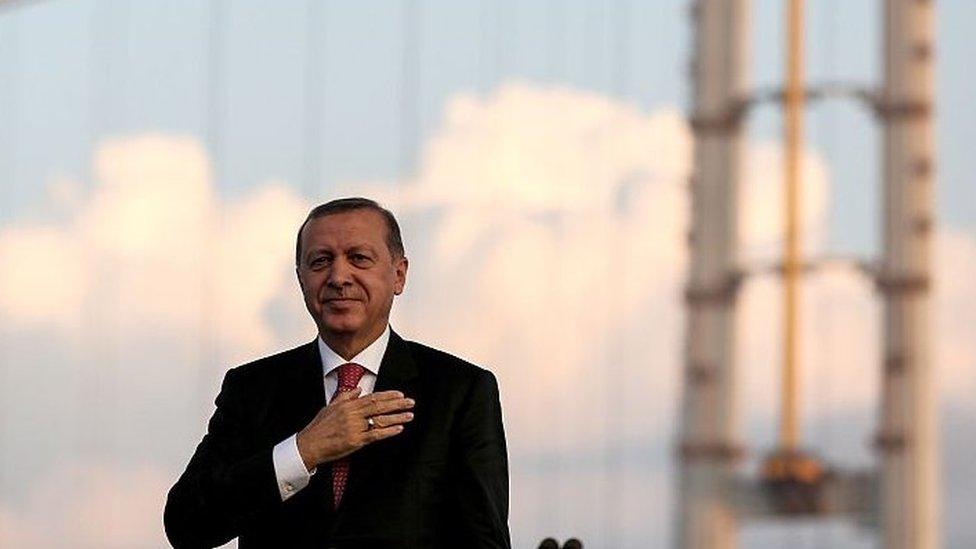Turkey coup attempt: General Akin Ozturk denies role in plot
- Published
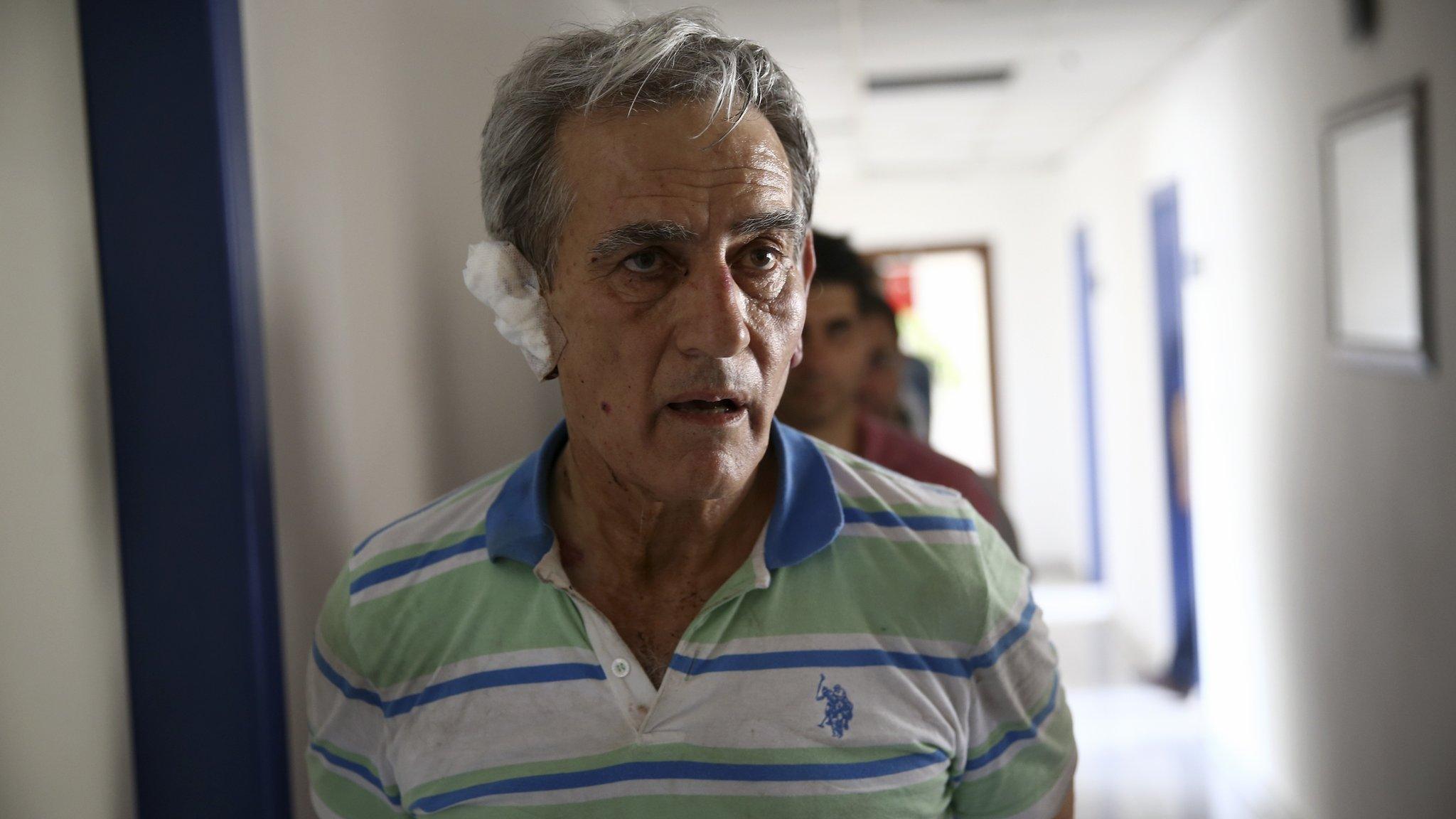
Akin Ozturk was among 70 generals and admirals being detained, Anadolu reported
A former air force commander has denied being a ringleader of Friday's attempted military coup in Turkey.
Gen Akin Ozturk and 26 senior officers were charged with treason and remanded in custody by a court on Monday, the state-run Anadolu news agency said.
But in a statement to prosecutors, the general insisted: "I am not the person who planned or led the coup."
Anadolu had earlier quoted him as telling interrogators that he had "acted with intention to stage a coup".
Officials have blamed the unrest, which killed at least 232 people and wounded 1,400, on the US-based Muslim cleric Fethullah Gulen and the "parallel structure" they say he has formed to topple the government.
Former PM Davutoglu: Turkey will defend itself, regardless of what our European friends say
"I don't know who planned or directed it. According to my experiences, I think that the [Gulen movement] attempted this coup," Gen Ozturk was quoted as telling prosecutors by Anadolu before appearing in court in Ankara.
"But I cannot tell who within the armed forces organised and carried it out. I have no information. I have fought against this structure."
In an interview with the BBC on Monday evening, Mr Gulen called the attempted takeover "treason" and urged the government to produce evidence of his alleged involvement, saying Turkey was no longer really a democracy.
Earlier, the interior ministry dismissed almost 9,000 police officers as part of a purge of officials suspected of involvement in the coup attempt.
That followed the arrest of 6,000 military personnel and suspension of almost 3,000 judges over the weekend.
Turkey's Western allies expressed concern at the crackdown and urged President Recep Tayyip Erdogan to respond in a measured way.
Why did the coup in Turkey fail?
After a breakfast meeting in Brussels with US Secretary of State John Kerry, European Union foreign ministers warned that Turkey's ambitions to join the bloc would be over if the death penalty was reinstated.
"We need... to have Turkey respect democracy, human rights, and fundamental freedoms," EU foreign affairs chief Federica Mogherini said.
Mr Kerry urged the Turkish government to "maintain calm and stability throughout the country", but also cautioned "against a reach that goes well beyond that and stress the importance of the democratic rule being upheld".
But Mr Erdogan refused to rule out executing those convicted of treason, if the death penalty were to be restored by parliament.
Fethullah Gulen: "There is a possibility it could be a staged coup"
"'Why should I keep them and feed them in prisons, for years to come?' - that's what the people say," he told CNN, external.
"They want a swift end to it, because people lost relatives, lost neighbours, lost children... they're suffering so the people are very sensitive and we have to act very sensibly and sensitively."
Mr Erdogan also insisted the US should extradite Mr Gulen, warning that it "should not keep such a terrorist".
Mr Gulen told the BBC that the US authorities would not respond to any request that was unlawful.
But he added that he would die eventually - and that whether that happened at home or in prison did not matter to him.

Are you in Turkey? How has the coup attempt changed the country? Have you been affected by recent events? What are your hopes and fears for the future? You can email haveyoursay@bbc.co.uk, external with your experiences.
Please include a contact number if you are willing to speak to a BBC journalist. You can also contact us in the following ways:
Whatsapp: +44 7525 900971
Tweet: @BBC_HaveYourSay, external
Send an SMS or MMS to 61124 or +44 7624 800 100
- Published16 July 2016
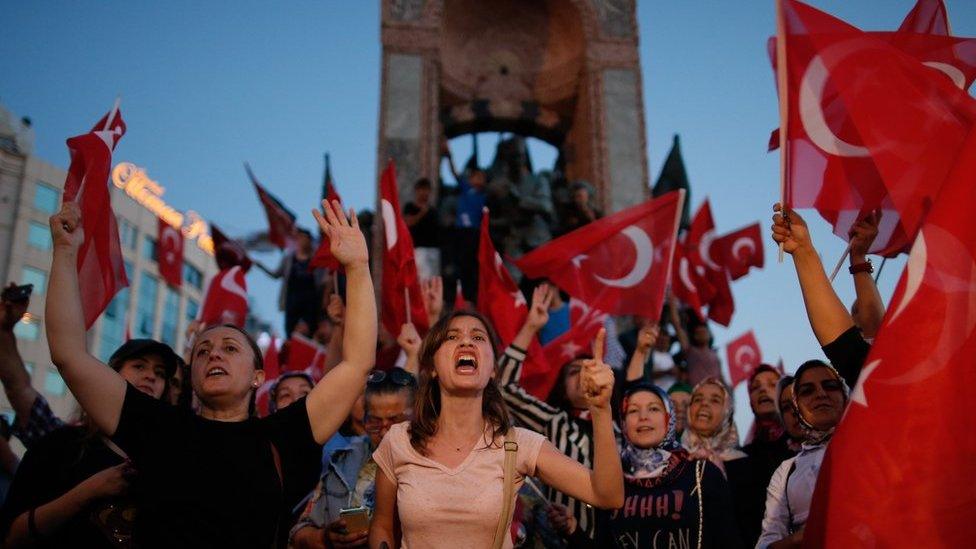
- Published17 July 2016
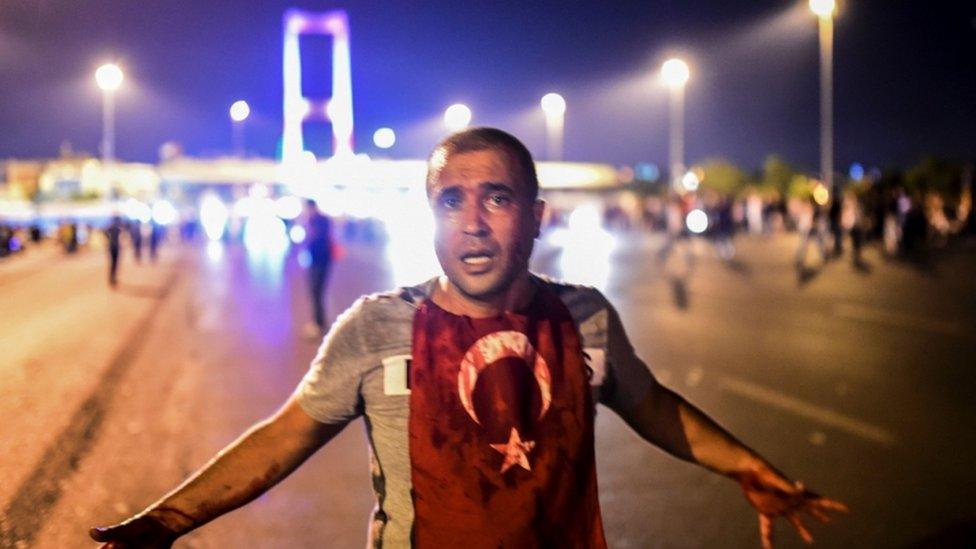
- Published16 July 2016
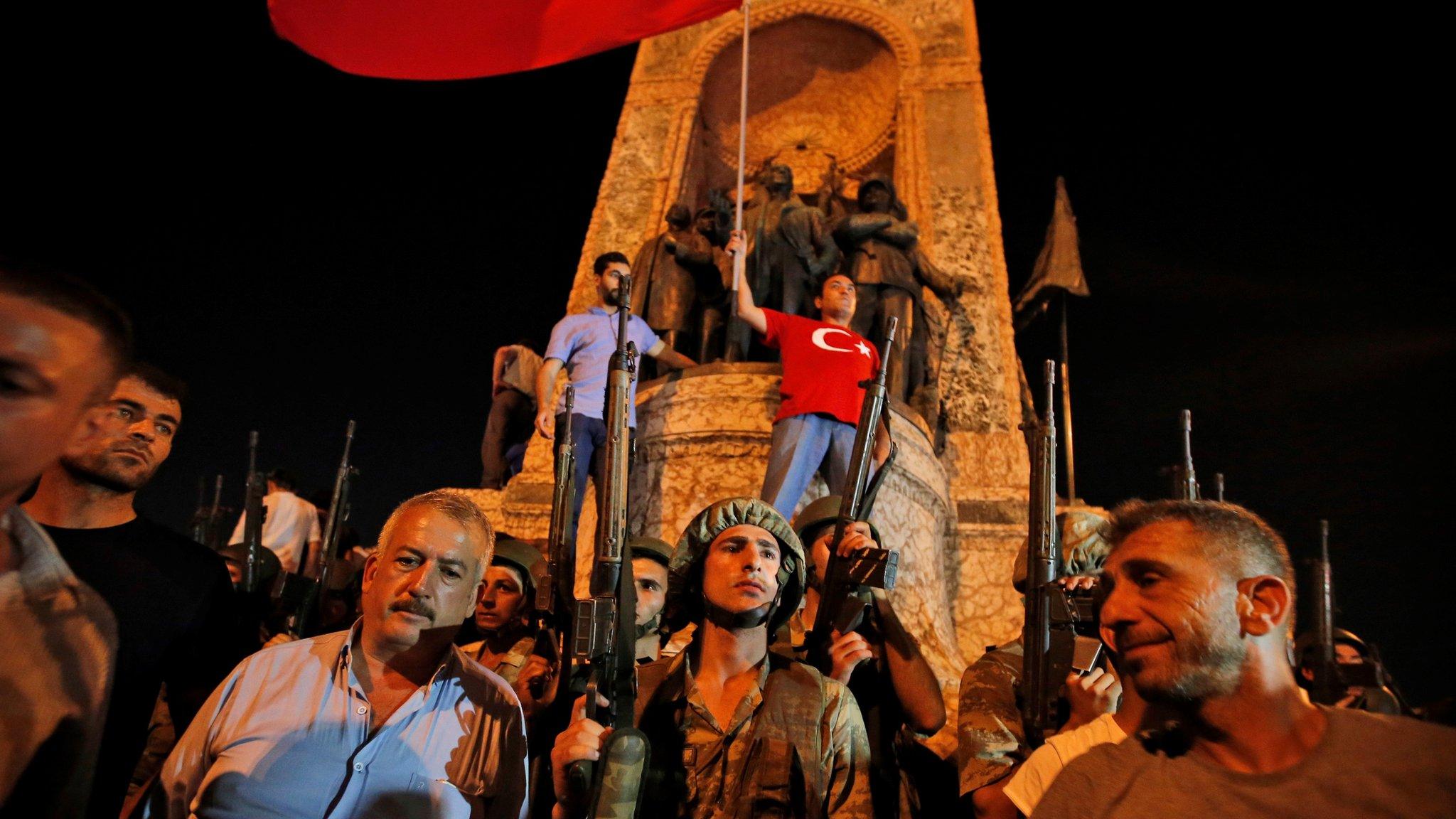
- Published18 July 2016
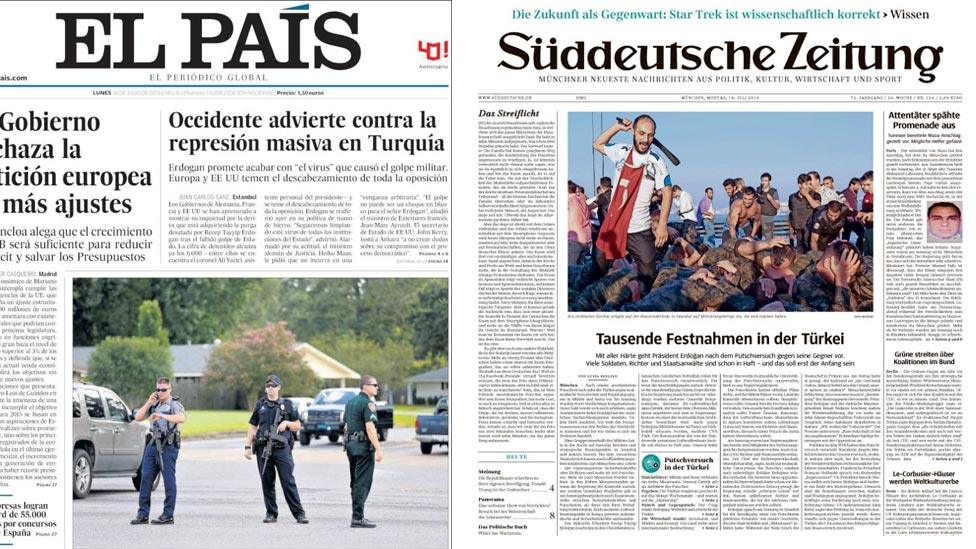
- Published16 July 2016
- Published15 July 2016
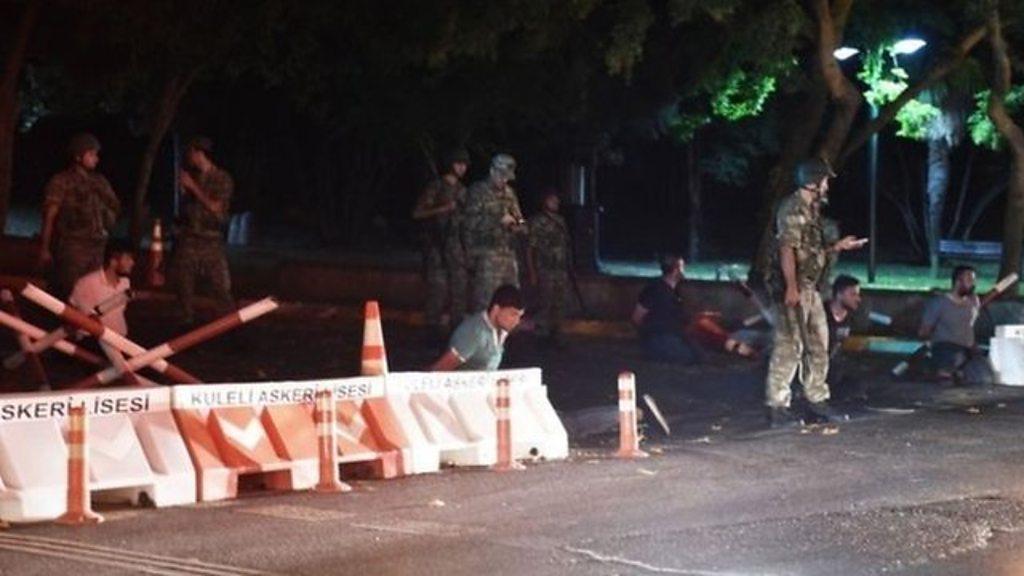
- Published24 March
